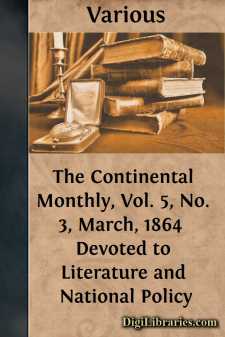Categories
- Antiques & Collectibles 13
- Architecture 36
- Art 48
- Bibles 22
- Biography & Autobiography 816
- Body, Mind & Spirit 145
- Business & Economics 28
- Children's Books 18
- Children's Fiction 14
- Computers 4
- Cooking 94
- Crafts & Hobbies 4
- Drama 346
- Education 58
- Family & Relationships 59
- Fiction 11834
- Foreign Language Study 3
- Games 19
- Gardening 17
- Health & Fitness 34
- History 1378
- House & Home 1
- Humor 147
- Juvenile Fiction 1873
- Juvenile Nonfiction 202
- Language Arts & Disciplines 89
- Law 16
- Literary Collections 686
- Literary Criticism 179
- Mathematics 13
- Medical 41
- Music 40
- Nature 179
- Non-Classifiable 1768
- Performing Arts 7
- Periodicals 1453
- Philosophy 66
- Photography 2
- Poetry 897
- Political Science 203
- Psychology 45
- Reference 154
- Religion 516
- Science 126
- Self-Help 86
- Social Science 82
- Sports & Recreation 34
- Study Aids 3
- Technology & Engineering 59
- Transportation 23
- Travel 463
- True Crime 29
Our website is made possible by displaying online advertisements to our visitors.
Please consider supporting us by disabling your ad blocker.
The Continental Monthly, Vol. 5, No. 3, March, 1864 Devoted to Literature and National Policy
by: Various
Categories:
Description:
Excerpt
AMERICAN FINANCES AND RESOURCES.
LETTER NO. III. OF HON. ROBERT J. WALKER.
London, 10 Half Moon Street, Piccadilly,
December 3d, 1863.
It is generally believed, even when the American rebellion should be suppressed, that there would be a great loss of wealth and resources on the part of the United States. As an economical question the great truth is not disputed by me, that, as a general rule, wars by a waste of property, by large expenditures, and by the withdrawal of so much labor from the pursuits of industry, impair the material interests of the nation. The influence of such considerations in the United States is not denied; but there are in the cause of this contest, as well as in its effects and consequences, results which will more than compensate for such losses. Slavery was the sole cause of this rebellion, and the result will be the reconstruction of the Union, with slavery everywhere extinguished. On this assumption, the question is, whether the substitution of free for slave labor throughout every State and Territory of the Union will not, as a question of augmented wealth and invigorated industry, far more than compensate for the losses incurred in the contest. Reasoning inductively, it might well be supposed that the willing labor of educated and energetic freemen would be far more productive than the forced labor of ignorant, unwilling, and uneducated slaves. In the realm of science, as well as in the direction of labor, knowledge is power, education is wealth and progress; and that this is applicable to the masses who compose a community, and especially to the working classes, is demonstrated by our American official Census. In proof of this position, I will proceed by a reference to the official tables of our Census of 1860, to show not only in particular Slave States, as compared with other Free States, whether old or new, Eastern or Western, or making the comparison of the aggregate of all the Slave with the Free States, the annual product of the latter per capita is more than double that of the Slave States. I begin with Maryland as compared with Massachusetts, because Maryland, in proportion to her area, has greater natural advantages than any one of the Slave or Free States; and if the comparison with the Free States is most unfavorable to her, it will be more so as to any other Southern State; as the Census shows that, from 1790 to 1860, as well as from 1850 to 1860, Maryland increased in population per square mile more rapidly than any other slaveholding State.
We must consider the area, soil, climate, mines, hydraulic power, location, shore line, bays, sounds, and rivers, and such other causes as affect the advance of wealth and population.
The relative progress of Maryland has been slow indeed. The population of the Union, by the Census of 1790, was 3,929,827, of which Maryland, containing then 319,728, constituted a twelfth part (12.29). In 1860, the Union numbered 31,445,080, and Maryland 687,034, constituting a forty-fifth part (45.76). In 1790, the Free States numbered 1,968,455, Maryland's population then being equal to one sixth (6.12); but, in 1860, the population of the Free States was 18,920,078, Maryland's number then being equal to one twenty-seventh part (27.52)....












